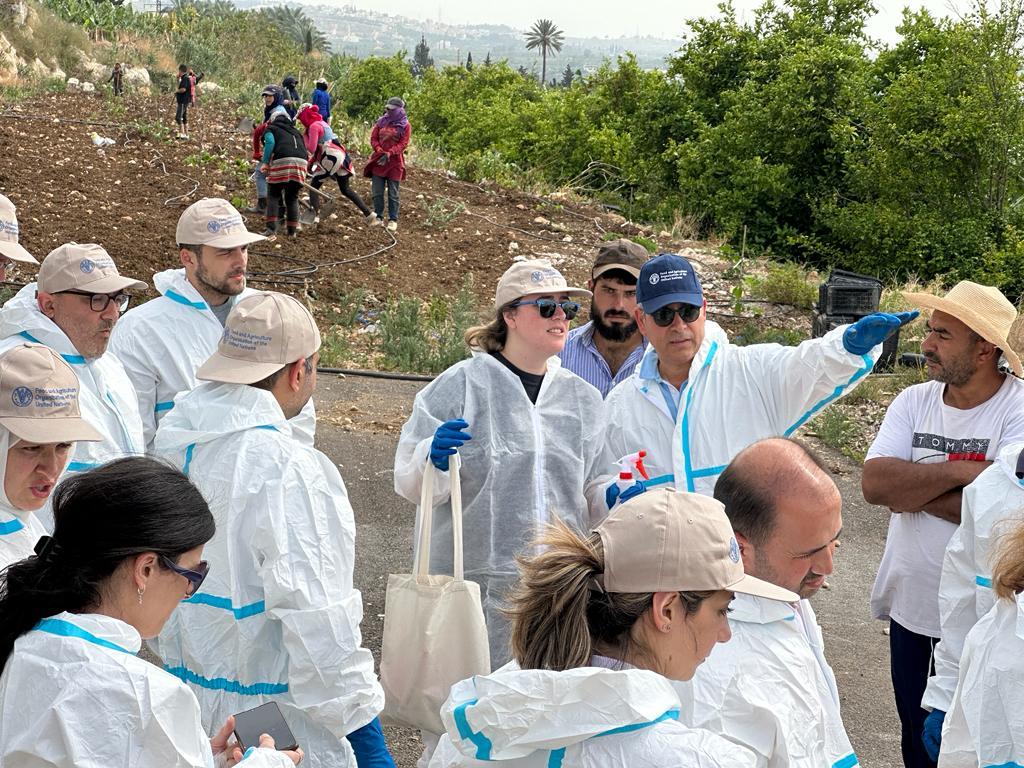FAO holds a workshop on the management of the destructive banana Fusarium wilt in Lebanon

@FAO
Sidon, 24 May 2023 - The Food and Agriculture Organization of the United Nations (FAO) held a training of trainers’ workshop in Lebanon on surveillance, containment and management of the Tropical Race 4 of Fusarium wilt (Foc TR4), which is one of the most destructive diseases for banana crops. The city of Sidon hosted the workshop, which included a field visit and practical training on sampling. The training comes within the framework of the project "Enhancing Capacity to Contain and Manage Fusarium Wilt (Foc TR4) on Bananas in Lebanon".
FAO and scientists from the university of Stellenbosch in South Africa prepared a training manual for the field and laboratory diagnosis of this devastating disease, which threatens the banana crop and can cause huge economic losses in the affected countries. Stellenbosch University in South Africa is regarded as one of the best research universities in Africa. The Agriscience Faculty is rated as one of the top 100 agriculture faculties in the world.
Foc TR4, a soilborne disease, is considered dangerous since it can affect a wide range of banana races including “Cavendish” banana which is the most important traded variety globally. After infection with Foc TR4, banana plants may not show any signs of infection and can remain intact for up to a year. Symptoms of leaf yellowing and wilting of the leaves then appear. By the time signs appear, the disease has already spread in the soil and moved from one place to another through shoes, plants, agricultural machinery, and animals.
Considered the world’s most traded fruit, bananas are a major strategic crop in Lebanon, and the absence of appropriate phytosanitary measures and good management can lead to huge losses in banana production and trade, affecting farmers' livelihoods and food security in Lebanon and the region.
What is banana Fusarium wilt TR4?
Part of Fusarium oxysporum f.sp. cubense , the disease, which poses a great threat to banana cultivation in the Near East and North Africa region, is caused by a new variant of the fungus that had decimated banana plantations in the early 20th century, ultimately causing more than USD 2 billion worldwide in damages and leading to the replacement of the “Gros Michel” banana type with the “Cavendish” variety, which proved resistant to the earlier strain of the fungus but has now succumbed to the new race Foc TR4.
The fungus can easily spread and remains viable in the soil for decades, which is why phytosanitary standards established by the International Plant Protection Convention (IPPC) are essential as the best approach in preventing the fungus from reaching a new country or region.
